‘Shame and disgrace’: Russia rebukes Japan PM’s US Congress speech
Russia has censured the Japanese prime minister for the “shame and disgrace” laid in his indignant speech at the US Congress.
Japanese Prime Minister Fumio Kishida addressed US lawmakers in a joint session of Congress on Thursday.
In the speech, Kishida expressed concern about the “risks of another catastrophe” related to the use of nuclear weapons.
What a shame and disgrace… https://t.co/l7SU618z3T
— Dmitry Polyanskiy 🇺🇳 (@Dpol_un) April 12, 2024
In a Friday post on X, Dmitry Polyansky, First Deputy Permanent Representative of Russia to the United Nations, drew attention to the speech in the US Congress.
He described such statements to US lawmakers by a senior Japanese politician about a nuclear threat as a “shame and disgrace”.
Kishida, in the US Congress, expressed concern about the risks of “another disaster” associated with the use of nuclear weapons. However, the head of the Japanese government avoided the fact that the United States, the only country to ever use nukes, dropped its atomic bombs on Hiroshima and Nagasaki in 1945.
The Japanese leader then assured the Americans of Tokyo’s partnership and alliance with Washington and emphasized that Russia “continues to threaten the use of nuclear weapons.”
Kishida received US lawmakers’ repeated standing ovation, drawing thunderous applause from the Americans throughout his speech.
“What a shame and disgrace,” Polyansky commented indignantly about Kishida’s speech which lasted more than half-an-hour.
Japan’s Deputy Permanent Representative to the UN, Mitsuko Shino, at a meeting of the UN Security Council on Ukraine, had recalled the nuking of Japan. The Japanese diplomat pointed out Tokyo’s concerns about the nuclear threat allegedly emanating from Russia. She, too, avoided mentioning that the United States had dropped nukes on Japanese cities.
US warplanes dropped the first atomic bomb code-named Little Boy on Hiroshima on Aug. 6, 1945, destroying the city and killing 140,000 people, mostly civilians, including many children.
On Aug. 9, 1945, a second bomb was dropped on Nagasaki, killing another 70,000, forcing Japan to surrender and ending World War Two. The bombs also left tens of thousands more dead in the months and years that followed, many from radiation-related illnesses.
Survivors of the attacks continue to require government support and medical care to this day.
VIDEO | Press TV's news headlines
VIDEO | Another Gaza medic dies in Israeli custody
VIDEO | Hezbollah says prepared to defend Lebanon, does not seek war
VIDEO | Celebrations held across China to welcome New Year
VIDEO | Mexico’s historic battle reenactment draws over 200,000 visitors
'ICE-style enforcement': nearly 70 groups slam EU migration policy
Araghchi holds key meetings in Geneva ahead of indirect Talks with US
Iran to hold 40th day commemoration for martyrs of terrorist riots


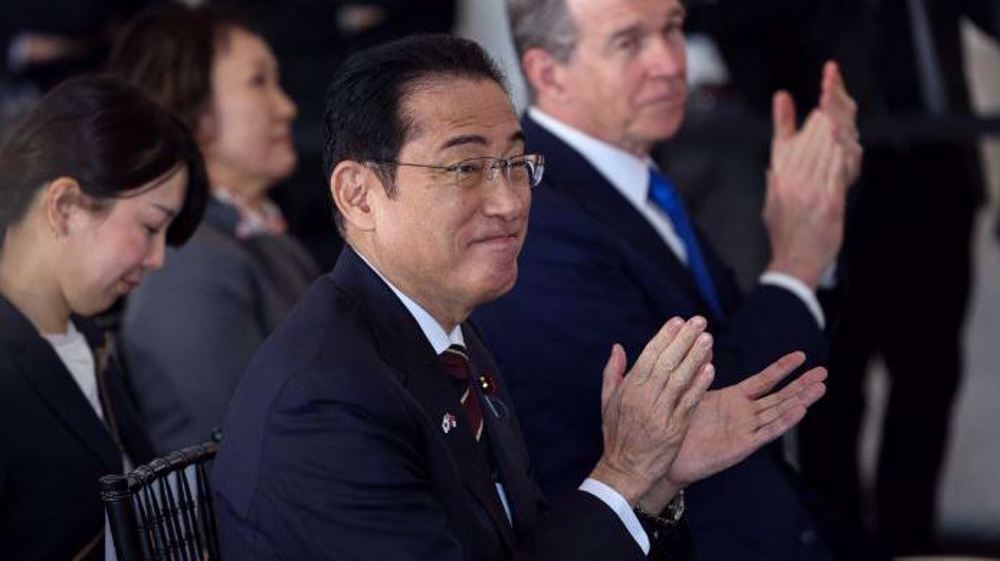
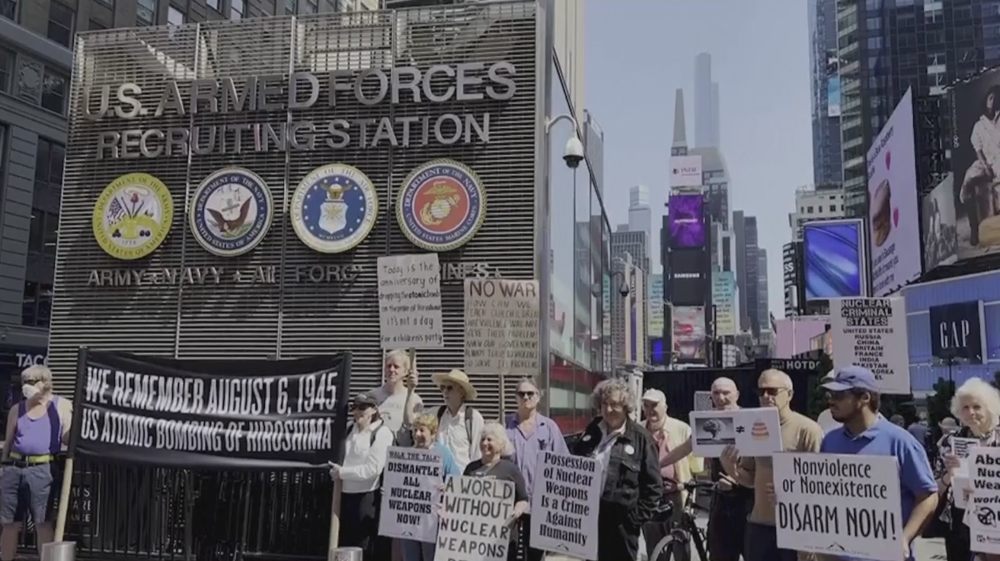
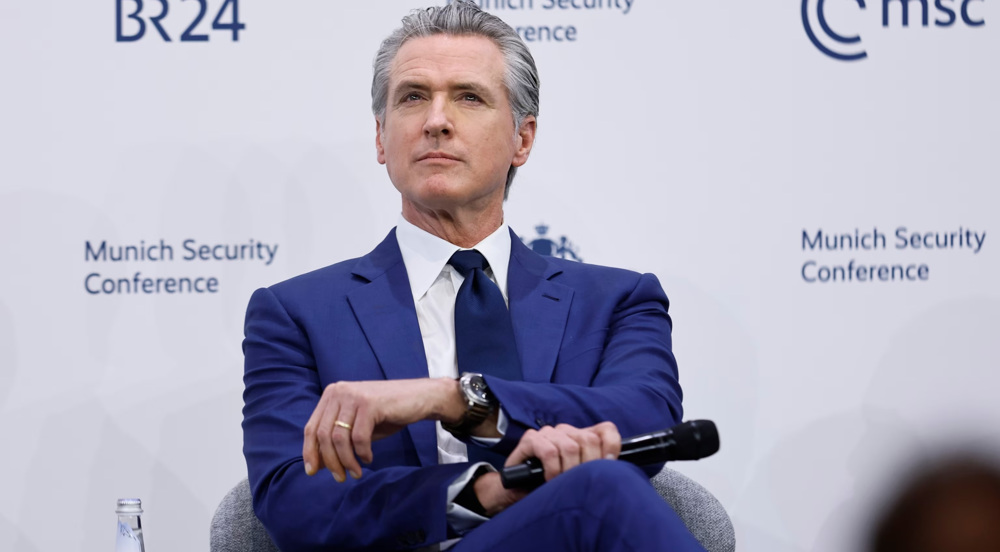
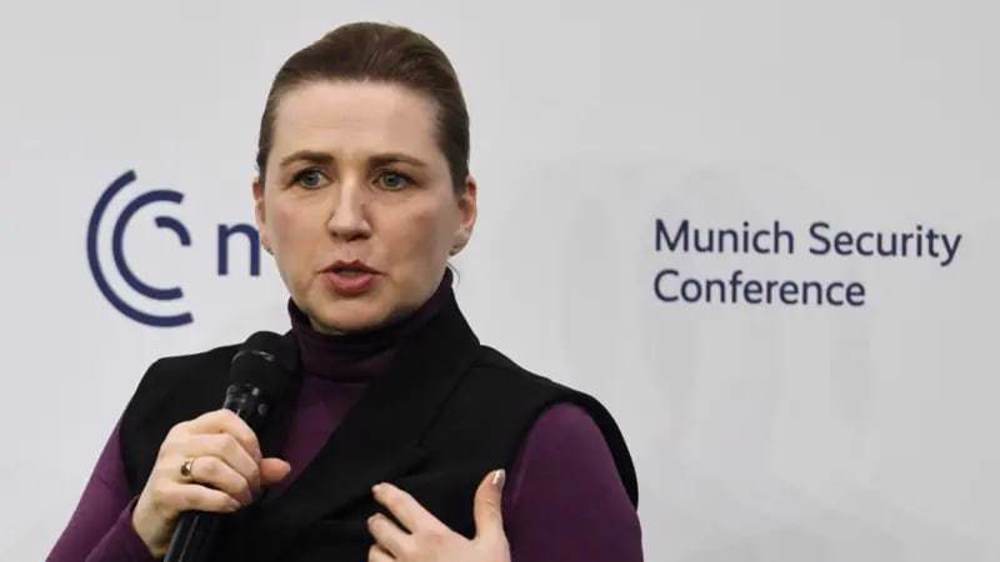
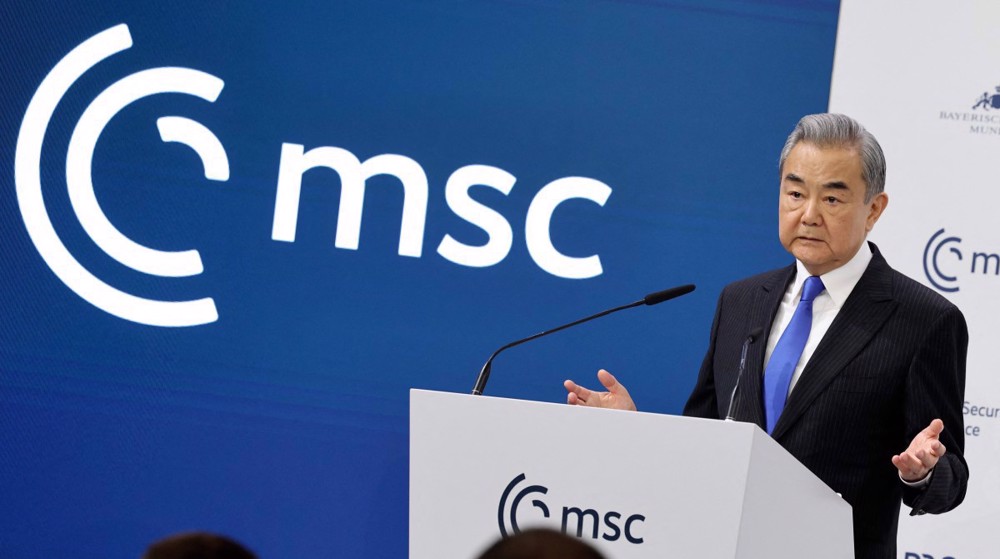



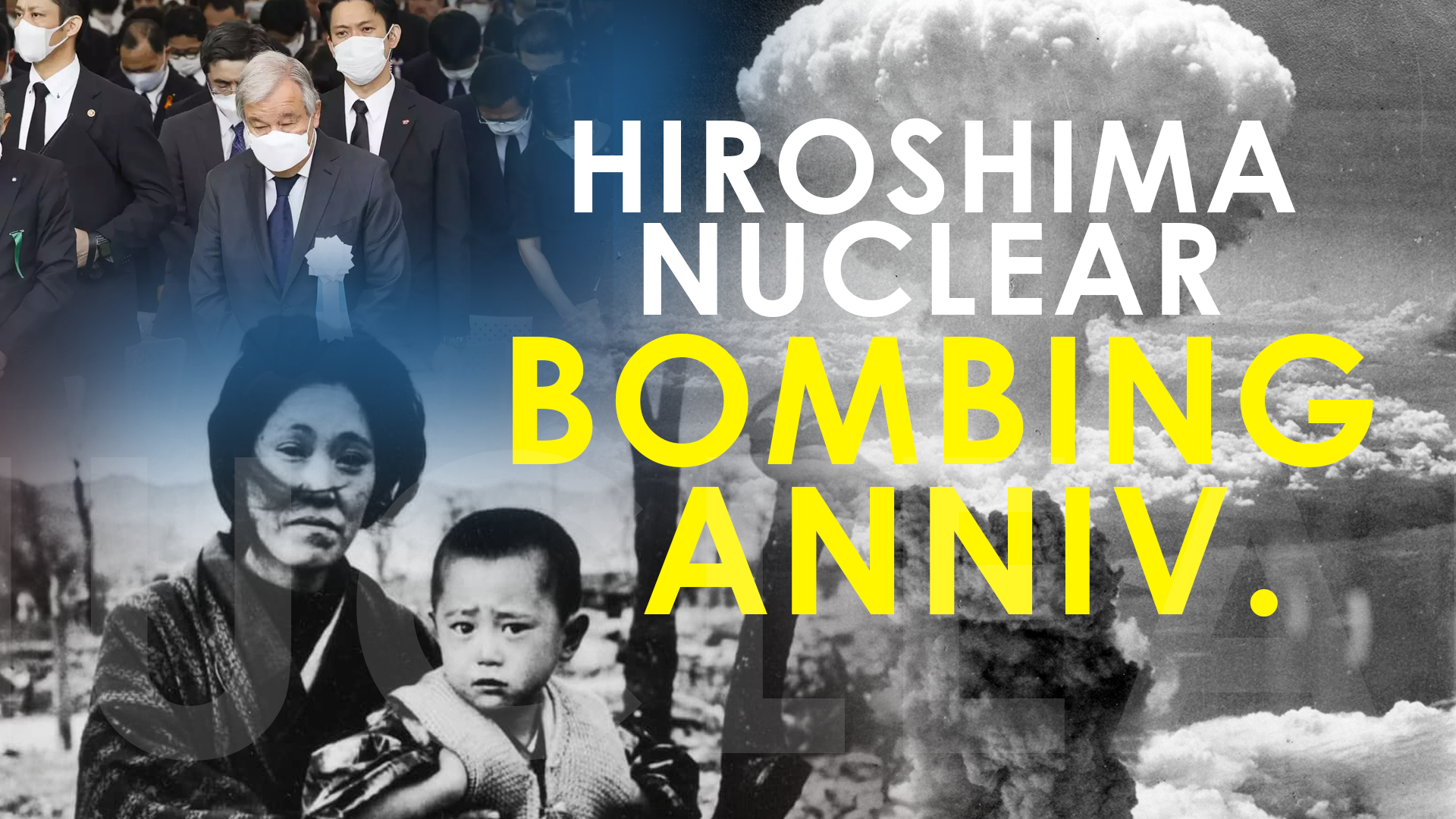

 This makes it easy to access the Press TV website
This makes it easy to access the Press TV website